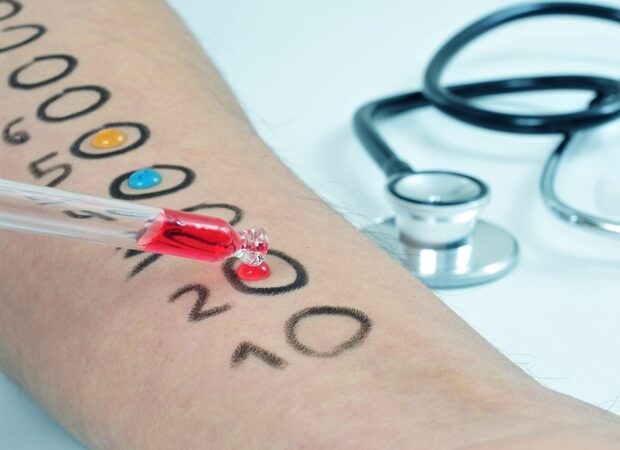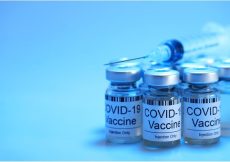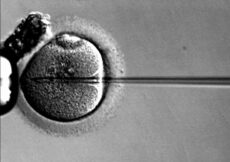Across the world, food allergies are on the rise. One of the most important cells in studying this ailment are basophils, which activate inflammation and other responses to allergens such as rashes, and sometimes, anaphylaxis. But basophils are exceedingly rare in a typical vial of blood, compromising 1% or less of all white blood cells. In order to advance the science of food allergies – and to learn more about this elusive cell – engineers and clinicians at Stanford University have focused their attention on a way to isolate basophils.
In a paper published in Lab on a Chip, the researchers outline a microfluidic system that isolates allergen-reactive basophils from blood samples. “Our long-term goal is to figure out how to design a better food allergy test that’s safer and more accurate,” said Sindy Tang, an associate professor of mechanical engineering and senior author of the paper. “We identified the basophil activation test as the most promising one given all the data from our clinical collaborators and labs throughout the world. But the current workflow is not amenable to widespread clinical use.”
Scientists have shown that a test that’s been around for more than 10 years, the basophil activation test, is a lot more accurate than other allergy tests – like a skin prick test or traditional blood test – but it’s currently only used in research settings.
Perfecting this test is a priority for some clinician-scientists like Stephen Galli, the Mary Hewitt Loveless, MD, Professor and co-author of the study, who says that this is the future of allergy testing – avoiding the discomfort and potential of serious adverse reactions in patients, while also improving the chances of useful results.
“Of all patients with antibodies that might mediate true allergic reactions against a particular allergen, only about half of them actually show clinical reactivity to that allergen,” said Galli. “Using their basophils, 95% or more of patients with some clinically significant allergies can be identified.”
Purity through magnetic sifting
Currently, the basophil activation test requires a cumbersome laboratory procedure. The test these researchers envision could produce results faster with a comparatively hands-off approach that could enable clinical use. Isolating basophils from a small volume of blood is one critical aspect of their approach.
Beginning with a sample of whole blood, the researchers use a combination of size-based sorting to remove red blood cells before introducing a couple of special additives to the white blood cells.
We use an antibody cocktail, which targets non-basophils. And then the magnetic nanoparticles bind to those antibodies.”
Nicolas Castaño, PhD student and lead author of the paper
Then, to isolate the basophils, the researchers pull cells through a device that applies a custom-designed magnetic field that attracts and immobilizes everything that’s not a basophil. The cells flow through a progressively stronger magnetic field to ensure the resulting fluid contains pure basophils.
“With this, we’ve created a sieve for isolating basophils that helps us with a diagnostic readout far beyond what currently exists,” said Castaño, citing purities and recovery over 95%.
Designing the future of testing
A key driver of the device design was time. It’s essential to isolate living cells quickly: the blood cells have more integrity the less time spent out of the body, thereby increasing the viability and accuracy of tests.
The fast isolation time of 10 minutes that these researchers achieved also increases the accessibility of the tests to a wide range of clinics. The logistics of running the blood collections from a hospital to a central processing facility can delay and impede the likelihood that doctors will request the tests. Providing the isolation at clinics and diagnostic labs “helps to unlock this whole realm of being able to run a class of tests called immune functional assays at the clinic,” said Castaño.
The basophil activation test is just the first application of this device. It could be used with other immune functional assays – tests that doctors use to assess particular therapeutic treatments at the cellular level – that require other white blood cell types, not just basophils. This comprehensive application could revolutionize additional allergy and immunological studies, said the researchers.
Castaño is eager for the next stages of development because this microfluidic basophil isolation system is a “mid-stream process.” To fully develop the test, the upstream blood collection and downstream activation measurement will have to be just as streamlined.
“You can’t have a good treatment approach without a good diagnostic readout,” Castaño said. “In the future, we hope to develop a fully automated, miniaturized, rapid, and standardized test to be made accessible for clinicians diagnosing or monitoring allergies.”
Source:
Journal reference:
Castaño, N., et al. (2022) Exponential magnetophoretic gradient for the direct isolation of basophils from whole blood in a microfluidic system. Lab on a Chip. doi.org/10.1039/D2LC00154C.



_963c8f30b7944136b1c0aa4b1c457a3b-620x480.jpg)































